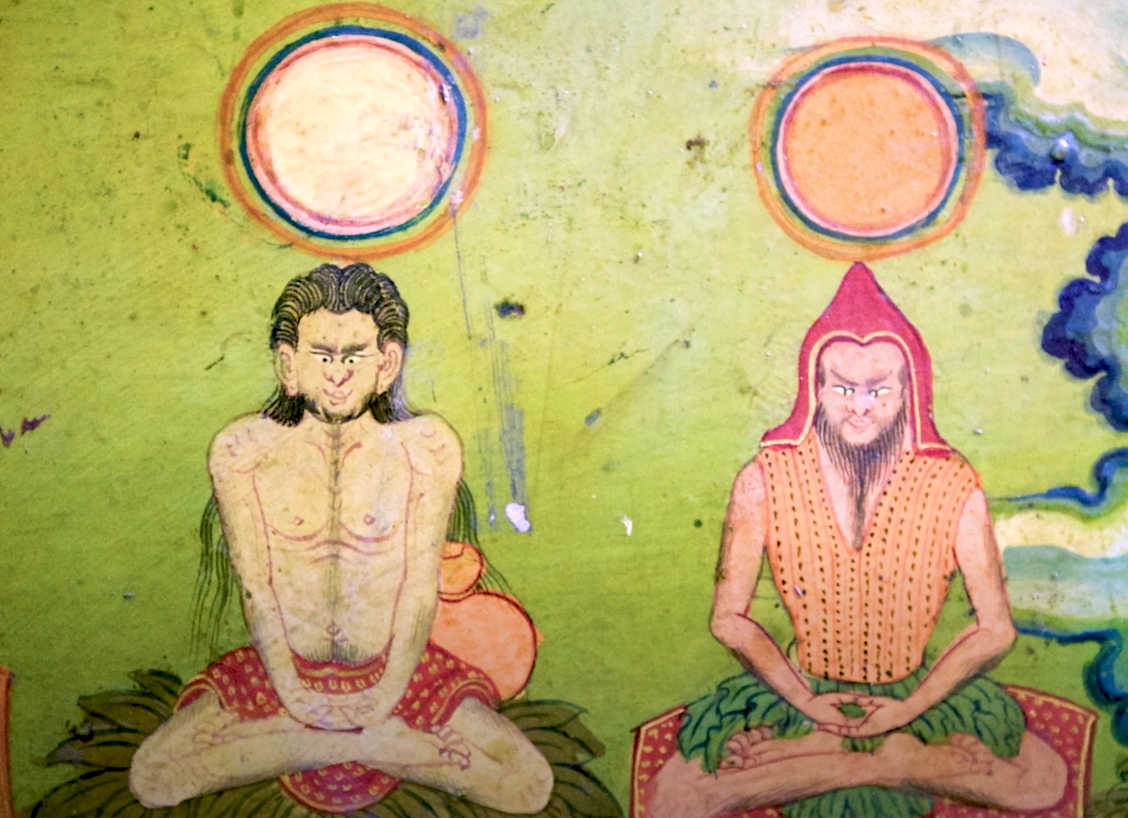Trekchö on:
[Wikipedia]
[Google]
[Amazon]
 In
In
 In
In Dzogchen
Dzogchen (, "Great Perfection" or "Great Completion"), also known as ''atiyoga'' ( utmost yoga), is a tradition of teachings in Indo-Tibetan Buddhism and Yungdrung Bon aimed at discovering and continuing in the ultimate ground of existence. ...
, ''trekchö'' (''khregs chod'') means "(spontaneous) cutting of tension" or "cutting through solidity." The practice of ''trekchö'' reflects the earliest developments of Dzogchen, with its admonition against practice. In this practice one first identifies, and then sustains recognition of, one's own innately pure, empty awareness. The main trekchö instructions in the Lamrim Yeshe Nyingpo Lamrim Yeshe Nyingpo is a terma revealed by Chokgyur Lingpa
Chokgyur Lingpa or Chokgyur Dechen Lingpa (1829-1870) was a tertön or "treasure revealer" and contemporary of Jamyang Khyentse Wangpo and Jamgon Kongtrul. Regarded as one of the major ...
state "This instant freshness, unspoiled by the thoughts of the three times; You directly see in actuality by letting be in naturalness."
Definition
According to Malcolm Smith, ''trekchö'' can also be interpreted as meaning "an undone bundle", "like a hay bale with the twine." In Vimalamitra's ''Great Commentary'', ''trekchö'' is defined as "the system of buddhahood through immediate liberation as a directly perceived realization that is not connected to appearances," and states that this is "the superior intimate instruction for the lazy who attain buddhahood instantly without meditation practice."Practice
Students receive pointing-out instruction (''sems khrid'', ''ngos sprod'') in which a teacher introduces the student to the nature of his or her mind. According to Tsoknyi Rinpoche, these instructions are received after the preliminary practices, though there's also a tradition to give them before the preliminary practices. Tsoknyi Rinpoche states, "As for my own personal experience, when I underwent the ngondro training, I had already received some Dzogchen instructions. The awakened state of rigpa had been pointed out, and I had a lukewarm certainty about what it was. But the ngondro helped me progress. Jigme Lingpa divides the ''trekchö'' practice into ordinary and extraordinary instructions. The ordinary section comprises the rejection of the ''"all is mind – mind is empty''" approach, which is a conceptual establishment of emptiness. Jigme Lingpa's extraordinary instructions give the instructions on the breakthrough proper, which consist of the setting out of the view (''lta ba''), the doubts and errors that may occur in practice, and some general instructions thematized as "the four ways of being at leisure" (''cog bzhag''), which are "a set of brief instructions on the spheres of view (''lta ba''), meditation (''sgom pa''), activity (''spyod pa''), and result (''Yeshe Lama Yeshe () is a Tibetan term meaning wisdom and is analogous to jnana in Sanskrit. The word appears for example in the title of the ''Lamrim Yeshe Nyingpo'', a Vajrayana Buddhist sacred scripture that records oral teachings of Padmasambhava in the 9t ...
'', Jigme Lingpa gives the following passage as an introduction to the nature of mind:
Regarding the "four ''cog bzhag''s", in the ''Yeshe Lama'', these four ways of "freely resting" or "easily letting be" are described by Jigme Lingpa as follows:
The "setting out of the view" tries to point the reader toward a direct recognition of rigpa, insisting upon the immanence of rigpa, and dismissive of meditation and effort). Insight leads to ''nyamshag'', "being present in the state of clarity and emptiness". To practice trekchö meditation, Jigme Lingpa states one sits cross legged with eyes open.
His instructions on trekchö begin by stating that one must "settle in the present moment of gnosis 'rigpa'' without spreading out or gathering in." Rigpa is defined as that knowledge where "the extremes of existence and nonexistence are unaccomplished."
See also
* Rigpa * Sky gazing * Tögal * Trul khorNotes
References
Citations
Works cited
* * * * * * * * * * * * * * {{Buddhism topics Dzogchen practices Tibetan Buddhist practices Tibetan words and phrases